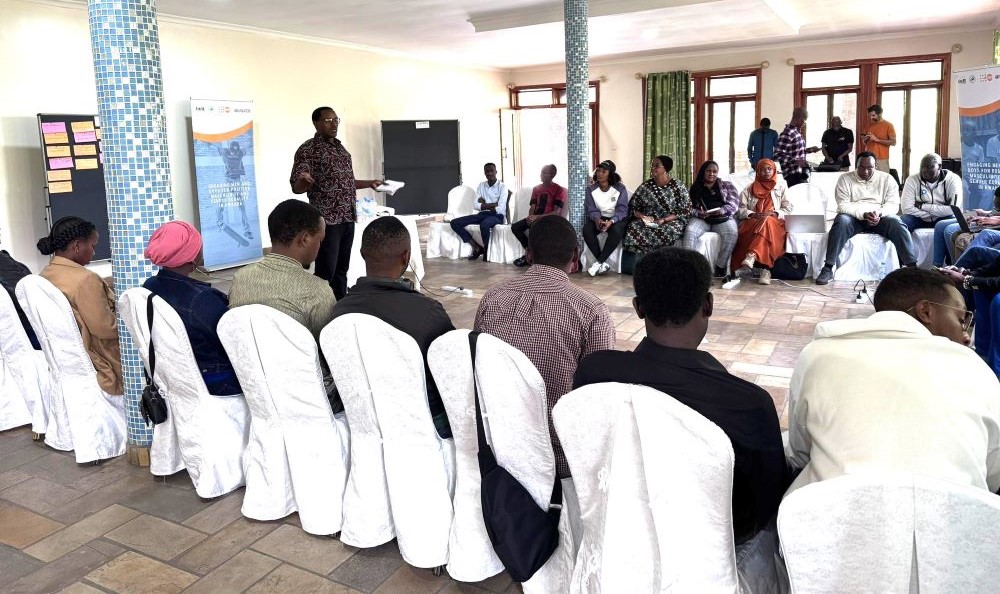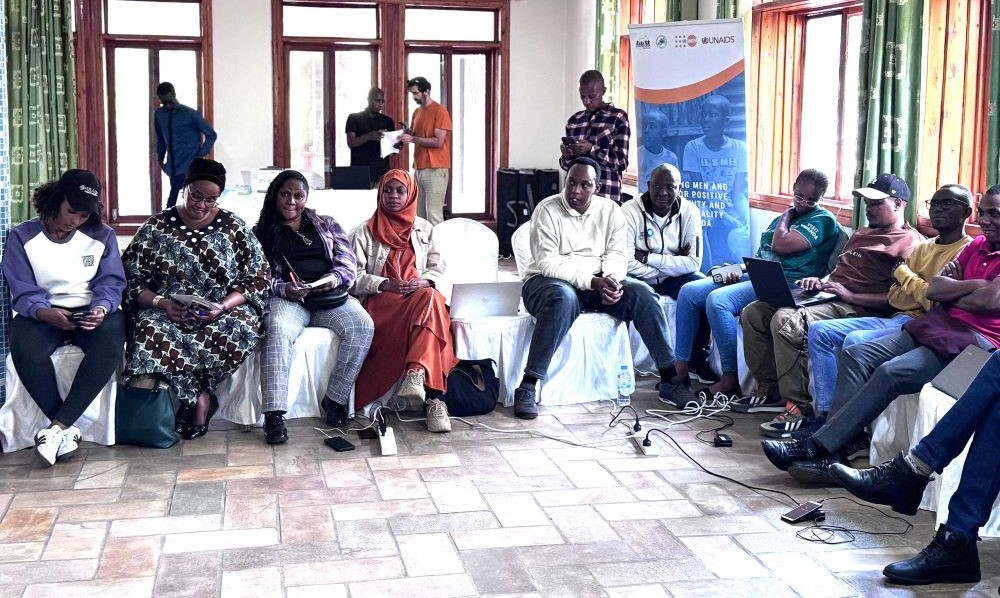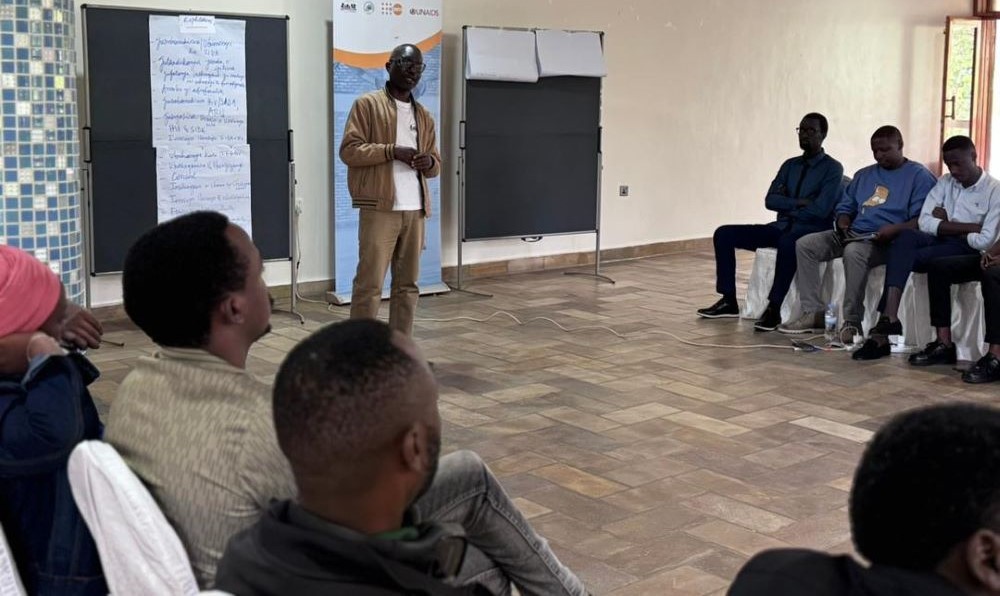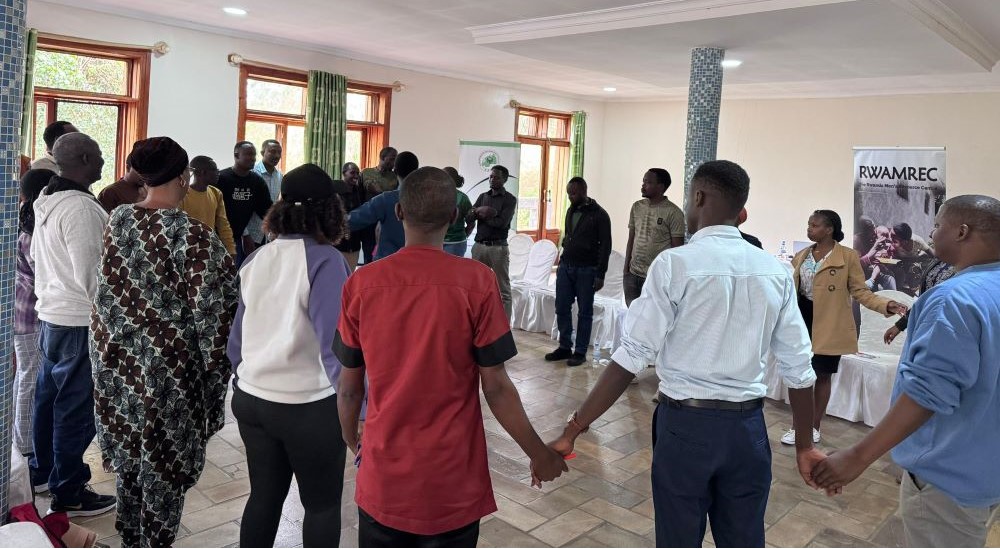A three-day capacity-building training for journalists, social media influencers, and youth-led organizations is underway in Musanze district, bringing together 28 participants aiming to reshape narratives around gender, masculinity, sexual and reproductive health, as well as HIV prevention.
The initiative is spearheaded by the Rwanda Men’s Resource Centre (RWAMREC) and the Rwanda Network of People Living with HIV (RRP+), in partnership with UNFPA Rwanda and UNAIDS Rwanda.
Organizers say the training is designed to equip media practitioners and youth leaders with the skills to challenge harmful stereotypes, promote inclusive dialogue, and advance advocacy using gender-transformative approaches.
Day one unfolded in an engaging atmosphere, with interactive discussions that encouraged participants to reflect on gender and power relations in everyday life. Sessions delved into the often-misunderstood distinction between gender and sex, a foundational concept in gender-transformative learning.
Through group exercises, participants examined household dynamics such as childcare, shared responsibilities, autonomy over one’s body, and the balance of power within relationships.

“These conversations allow us to question personal perceptions and rethink the roles society has normalized,” Dieudonné Kayitankore, one of the participants noted, emphasizing that meaningful change begins with awareness at the individual level.
During his opening remarks, Jean Berchmans Tugirimana, Director of Program Monitoring & Evaluation at RRP+, highlighted the urgency of such initiatives.
“Statistics show that while 229,275 people living with HIV (PLHIV) are receiving ART countrywide, RRP+ provides support to over 166,522 recipients of care (73%). Women are often the ones making the most effort to prevent its spread, while men remain less engaged. If we are to sustain progress, men must be equally involved,” he said.
Tugirimana added that although Rwanda is among the five countries globally that have reached the 95-95-95 HIV treatment targets, challenges persist. He cited cities as recording the highest prevalence, with districts like Nyagatare and Gatsibo in Eastern Province among the most affected.
On his part, Jonathan Munyanziza, Head of Resource Mobilization and Quality Assurance, underscored the need for inclusivity in combating HIV and gender-based violence.
“We cannot achieve sustainable results if we leave anyone behind. A holistic approach, where men take active responsibility alongside women, is essential to changing attitudes and reducing risks,” he said.

Participants echoed these sentiments, noting that inadequate advocacy and poor integration of gender-transformative strategies have often exacerbated the spread of HIV and perpetuated gender-based violence.
By the end of the three days, it is anticipated that participants will emerge as champions of positive masculinity and gender-sensitive reporting, capable of influencing public opinion and policies in ways that foster equity and prevent harm.
“The media has immense power to shape society. When journalists and young influencers use their voices responsibly, they can dismantle stereotypes and promote healthier, more inclusive communities,” Munyanziza emphasized.

